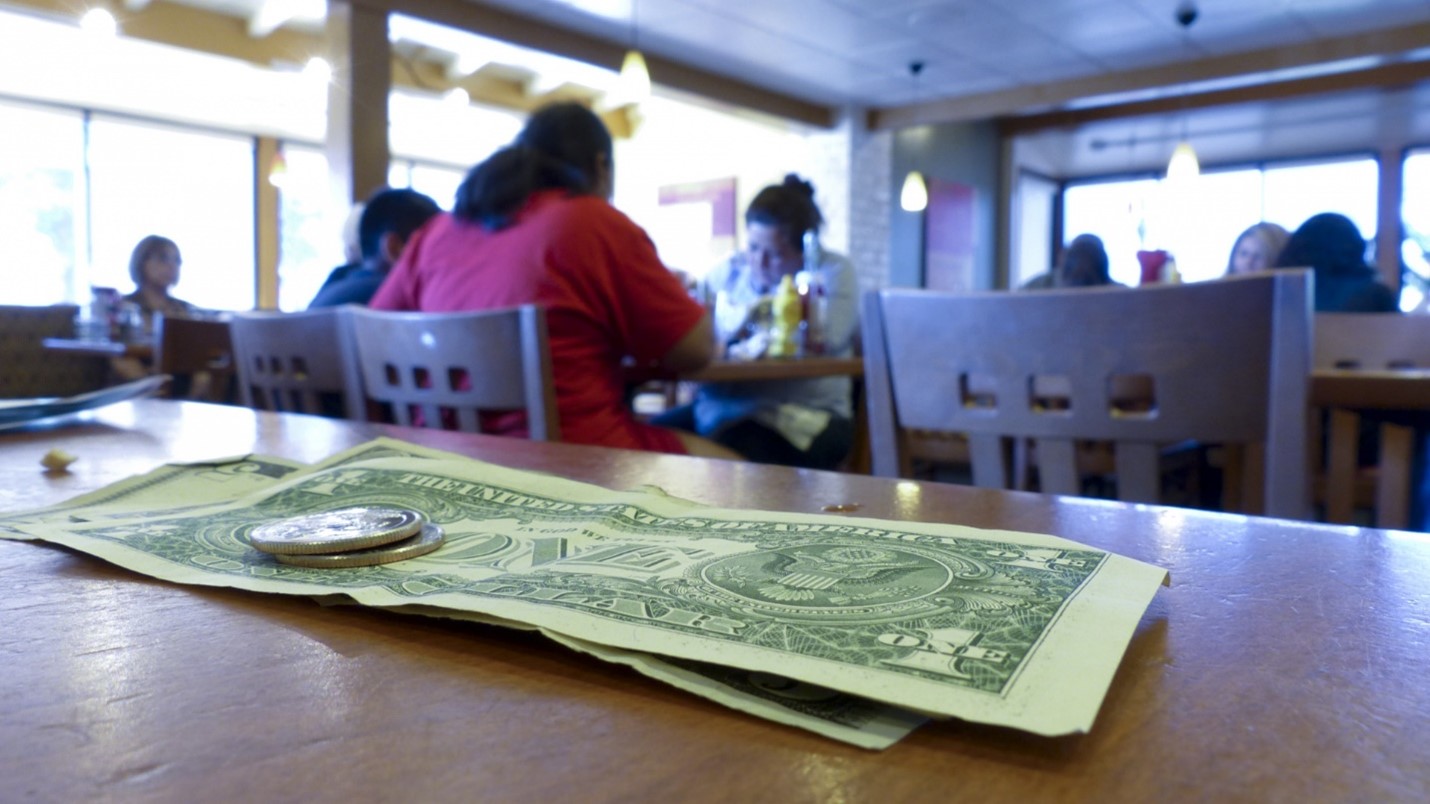The Department of Labor (“DOL”) recently released its final rule on tip regulations under the Fair Labor Standards Act (“FLSA”), providing clarity and flexibility for employers and potentially increasing pay for back-of-the-house workers, such as cooks and dishwashers.
In a statement released by the DOL, Former Wage and Hour Administrator Cheryl Stanton said, “Newly allowed tip sharing may incentivize the inclusion of these previously excluded workers and reduce wage disparities among all workers who contribute to customers’ experience.”
Final Rule Provisions
The final rule addressed amendments to the FLSA made by the Consolidated Appropriations Act (“CAA”) of 2018, which explicitly prohibited employers from keeping tips received by their employees, regardless of whether or not the employer claimed a “tip credit.” A tip credit is when the employer takes a credit for tips earned by their employees toward its minimum wage obligation. Supervisors and managers are also prohibited from keeping any portion of an employee’s tips.
While the CAA did not affect regulations that apply to employers that claim a tip credit, it did remove regulatory restrictions on an employer’s ability to require tip pooling when it does not take this credit. For example, employers that take a tip credit must ensure a mandatory “traditional” tip pool that includes only workers who customarily and regularly receive tips. Under a traditional tip pool, back-of-the-house employees, like cooks and dishwashers, would not be included. Now, if the employer does not take a tip credit, it may choose to implement mandatory, “nontraditional” tip pools to include back-of-the-house employees.
An employer that collects tips to facilitate a mandatory tip pool must fully redistribute the tips no less often than when it pays wages. Employers that do not claim a tip credit but collect employees’ tips to operate a mandatory tip pool must now follow a new recordkeeping requirement.
Additionally, the final rule codified recent guidance explaining that an employer may take a tip credit for time that an employee in a tipped occupation performs related non-tipped duties either at the same time as or for a reasonable time immediately before or after performing tipped duties. A non-tipped duty is presumed to be related to a tip-producing occupation if it is listed as a task of the tip-producing occupation in the Occupational Information Network (“O*NET”) (in addition to the examples listed in the regulation).
Finally, the rule incorporated the CAA’s requirements regarding civil money penalties, revised portions of those civil money penalty regulations to address court decisions, and amended the regulations that address the payment under Executive Order 13658 (Establishing a Minimum Wage for Contractors) to reflect corresponding changes in the FLSA.
DOL Delays
The new final rule regulations were scheduled to come into effect on March 1, 2021 but have seen several delays. On February 26, only a few days before the scheduled effective date, the DOL announced that it would be delaying the regulations until April 30. Then on April 28, another delay was announced of only a portion of the final rule, for an additional eight months, coming into effect on December 31, 2021. The sections that have come into effect include: 1) the prohibition of employers, supervisors, and managers from keeping tips received by workers, regardless of tip credits; 2) the recordkeeping requirements for an employer that does not take a tip credit to include non-tipped workers in nontraditional tip sharing arrangements; and 3) the requirement that employers must distribute tips no later than when it pays its wages.
During the April 28 delay announcement, Current DOL Wage and Hour Division Deputy Administrator Jessica Looman stated, “Tipped workers are among those hardest hit amid the pandemic, making these essential frontline workers a priority for the Wage and Hour Division,” and “The final rule announced today ensures that we have time to consider – fully and thoughtfully – all of the circumstances in today’s rapidly changing workplace, while allowing several portions of the 2020 rule beneficial to essential workers to take effect. Those workers deserve our careful and thoughtful consideration as we craft and implement rules that affect their well-being.” The purpose of the second delay for only specific portions of the tip rule is to allow the department additional time to address questions of law, policy and fact in relation to three provisions. The DOL will be assessing the civil money penalties for violating prohibitions on manager and supervisors keeping tips, the civil money penalties for willful FLSA violations, and the application of a tip credit for tipped employees who perform both tipped and non-tipped duties.
In the original regulation, the DOL eliminated the 80/20 rule, a rule that limits the percentage of time a tipped worker could spending performing non-tipped duties and still receive a tip credit. The 80/20 rules only allows employees to spend 20% of their time completing non-tipped responsibilities. Now, the DOL is reassessing this elimination and has stated that it needs more time to consider the issue.
Conclusion
The DOL’s final rule benefits employers and employees throughout food service industries. Traditional tip earners such as servers, waiters, and waitresses may have to share tips with co-workers who would not have traditionally not received tips, such as cooks and dishwashers. Several of the final rule provisions have already come into effect, while a few more are under consideration for alteration.

